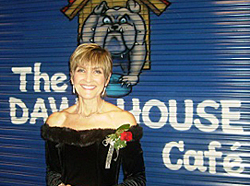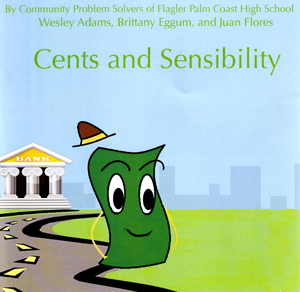
Speaking with Diane Tomko’s future problem solvers, you get the sense that these Flagler Palm Coast High School 16 and 17 year olds have a thing or two to teach Wall Street about sound economic sense, the United Nations about food security, big and small employers about autism, and most Americans about bad eating habits.
You also get a sense of reassurance. The country may be in recession. Its knack for producing young minds who re-imagine pragmatism to tackle some of society’s greatest challenges isn’t. These aren’t modest issues the problem solvers took on this year. Which is why their rewards weren’t modest, either.

Just 3 percent of the 50,000 students who participate in the annual problem solving competition in their respective states and countries make it to the final round at the international level. It’s saying something about the quality of Tomko’s students, and the originality of their projects, that Flagler will make up a disproportionate share of that 3 percent.
FPC’s problem solvers are looking to raise $6,000 to underwrite travel costs for the 16 students going to Wisconsin. That’s where you come in: There’s a benefit tonight from 6 8 p.m. in the Bistro 600 café at Flagler Palm Coast High School. And if you can’t make it tonight, you can still contribute until early June by contacting Diane Tomko at 386/437-7540. (Read more on the benefit.)
Tomko has directed the high school’s problem solvers program since 1993. The teams she’s shepherded through have garnered some 32 international titles since then. This year, the school’s 16 entrants in Wisconsin will make up half the representation from all Florida schools at the international competition. They’ll be going up against teams from 40 states and seven countries–Australia, Great Britain, Hogn Kong, Korea, Malaysia, New Zealand, and Singapore. If FPC’s reputation precedes it, those others tates and countries will take note when Flagler’s 16 walk in.

And, of course, not be vassal to China’s banks in your old age.





























Leave a Reply